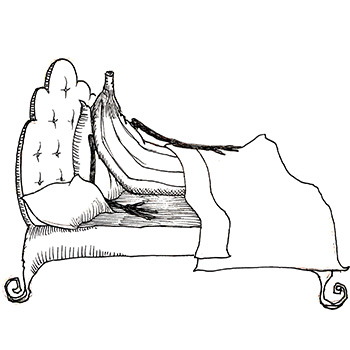
Related Questions
- How could biotechnology affect sports in the future?
- What makes nerve gas so dangerous?
- Why does our hair turn gray — as opposed to green or some other color — as we age?
- How do glucometers work?
- Can hearts, livers, and kidneys be grown in the lab for human transplants?
- Why do we sweat more in high humidity?
- Is it possible to control someone’s thoughts?
- Could I put a computer chip in my brain to make me smarter?
- Why don’t we get cancer of the hair or the fingernails?
- Why can’t machines — or humans — sniff out drugs or explosives as well as dogs?
Do humans emit radiation?
Yes, we do. But don’t freak out.
By Meg MurphyAll life on the planet has evolved in the presence of radioactivity, says Michael Short, a professor of Nuclear Science and Engineering at MIT.Human bodies contain radioactive elements like potassium. And so, yes, we emit a radiation signal, but “our bodies are equipped to deal with small amounts of radiation,” so don’t panic, he says.
So just how much radiation do people emit? “I like to put things in terms of what we call the banana-equivalent dose,” Short says. Bananas are high in potassium, he says, providing a useful measure of radiation.
“Sleeping next to someone for eight hours gives you about one and a half bananas worth of a dose,” he says. “If folks get worried, and they wonder: should I sleep alone? They should ask themselves: would you be afraid to eat two bananas? No, I didn’t think so,” says Short.
Thanks to 22-year-old Sam Ayebanate from Port Harcourt for this question.